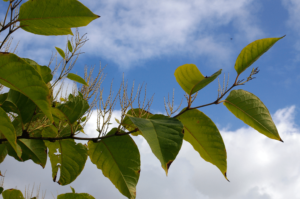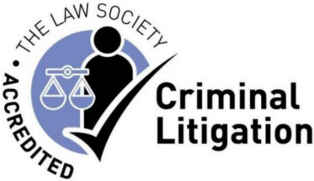Property Dispute Solicitors Specialising in Japanese Knotweed Compensation Claim
Japanese Knotweed (or Fallopia japonica) has been described by the Environmental Agency as “indisputably the UK’s most aggressive, destructive and invasive plant”. What’s more, the World Conservation Union goes one further describing it as ” one of the world’s worst invasive species”. It can destroy dreams by rendering your home or investment worthless and leave you in a state of despair.
With that in mind, one must ensure that when purchasing land or property affected with Knotweed that they do so diligently.
Why instruct us for your Japanese Knotweed compensation claim?
That’s because we already have a track record of success with these type of claims.
A member of our property dispute team responsible for these negligence claims, recently won £250k compensation in a case against a negligent surveyor, who despite being paid to conduct a survey, didn’t advise his clients that there was rampant Japanese Knotweed in the garden.
Click here to read more about making a surveyor negligence claim.
Why is Japanese Knotweed so bad?
Not only is Japanese Knotweed destructive (it can destroy concrete) but it also grows at a rapid rate and is extremely difficult to eradicate, hence why some lenders are reluctant to lend on properties affected by it. Although over the winter it dies back to ground level, when the plant emerges in early summer from rhizomes deep underground, it can rapidly grow to a height of over 7 feet (2.1m). It can grow as rapidly as 10cm in a single day.
Japanese Knotweed easily spreads. Plants can grow from stem fragments as small as 0.7 gram. as a result, it can quickly colonise large areas of land if it is not controlled.
Getting completely rid of this incredibly tough and pervasive weed needs a really determined and consistent approach. It is very difficult to remove by hand or even eradicate with chemicals.
Is Japanese Knotweed a native plant?
No, Japanese Knotweed was brought to the UK from Japan circa 1825.
What does it look like?
- Leaves
Identification depends on the age of the plant; new leaves tend to be dark red and between 1cm and 4cm in length. Young leaves tend to be green with dark red veins running through the middle and the more mature leaves are green, heart-shaped and are approximately 12cm in length.
- Stem
The stem of the plant tends to resemble bamboo and when mature will be hollow.
- Flower
The flower of Japanese Knotweed and be up to 6 inches long, and is white. The plant tends to bloom between August and September.
- Root
The root (“Rhizome”) has an “earthy” brown exterior and a golden/ orange interior. Commonly the roots spread to a maximum of around 1 or 2 metres depth, but can reach as deep as 3 metres.
It is advisable that you seek the assistance of a specialist to assist with identification.
What are the risks?
If you purchase or acquire land or property affected by Japanese Knotweed, then you’ll be responsible for any and all liabilities associated with it. This could include the immediate cost of removal, repair and loss in value to your land and to any neighbouring land affected by encroachment from your land.
A good example of this liability can be found in the recent case of Williams and another v Network Rail Infrastructure Ltd [2018] in which the Court of Appeal confirmed that where Japanese Knotweed encroaches onto landowners land, there’s no need for physical damage to be present for an actionable claim in private nuisance.
This case is a good reminder of what we must do when we have the necessary knowledge of the presence of Knotweed but fail to do all that is reasonable to prevent encroachment to neighbouring land.
Japanese Knotweed and Selling Your Property
Since 2013, when selling property, you must state in the TA6 (conveyancing property information form) whether Japanese knotweed is present on your property.
Unfortunately, it can be extremely difficult to sell land or property affected by Japanese Knotweed, simply because there aren’t many lenders out there willing to take the risk. That means that the “pool” of prospective purchasers can be somewhat limited.
Don’t be fooled into thinking that it is best to keep quiet about this plant, because if you know of the presence of Japanese Knotweed but deny knowledge of it in pre-contract enquiries, then you could be found liable for misrepresentation. That could prove very expensive. Honesty is always the best possibility.
Buying Land or Property with Japanese Knotweed Present
Getting a loan on a property purchased with Japanese knotweed present is not impossible. However those mortgage companies offering loans usually do require a clear assurance that the plant will be eradicated before agreeing to release the funds. That assurance can sometimes be provided by a management plan (with the support of a transferable guarantee) provided by a one of the small number of professional companies specialising in controlling, eradicating and dispose of the weed at licenced landfill sites. Bear in mind that treatment can take at least two years.
If, however, after purchasing you become aware of the presence of Japanese Knotweed on your land then you may have a claim against the surveyor who carried out your pre-purchase inspection and report, the seller or even your new neighbour.
There is Japanese Knotweed in my Neighbour’s Garden. What can I do?
The first step is to have a chat with your neighbour. It may be that they did not recognise the plant as Japanese knotweed already have plans in place to eradicate it. And given the spread of Japanese knotweed, they may appreciate your advice.
But the important thing to realise is that allowing Japanese knotweed to grow on your property is not illegal. So, you have no legal rights until plant spreads into your land. At that stage you can certainly take action to remove the plant, but bear in mind that Japanese knotweed spread far and wide underground – so if the infestation has come from next door, clearing it from your garden alone will properly not be enough.
If your neighbour is sensible, they will cooperate with you in removing Japanese knotweed. It is after all their responsibility. But do be aware, if they fail to do so, you do have 3 options.
- Mediation should always be the first stage – a mediator may assist the two of you in coming to a sensible outcome.
- Community Protection Notice – can apply for one of these from your local authority. You will however have to prove that you informed your neighbour about the Japanese knotweed problem. We recommend starting with a friendly conversation – but it’s always a good idea to confirm something in writing for applying to the local authority
- Litigation – suing your neighbour
Litigation should always be the final resort. It’s slow, stressful and expensive – and the outcome is rarely guaranteed. But, if your neighbour simply won’t cooperate in eradicating Japanese Knotweed from your garden, and which spread from there is, it is possible to start proceedings against them on the basis of nuisance.
And even if Japanese knotweed has not yet hit your garden, the fact that is it is rampant on your neighbour’s property could affect the value of your home. Some surveyors even estimate that having Japanese knotweed within a mere 7 metres of your own property can affect the valuation of your own property.
The kind of compensation your claim can cover include the following;
- Removal of knotweed from your property
- Make good any damage to your property
- Compensation for the financial loss, if any, in the market value of your property.
NB it is actually an offence to cause Japanese knotweed to grow in the wild and that can include just moving contaminated soil or plant cuttings. To give you an idea of how seriously this is taken, under the Wildlife and Countryside Act 1981, the penalty is either a fine of up to £5000 or a prison sentence of up to 2 years.
Your Next Steps?
First off, try not to panic! If you’re selling and have just discovered that you have Japanese Knotweed then please take action. Contact a specialist who will be able to assist you in a planned programme of works.
If you’ve just bought land or a property affected by Japanese Knotweed, then you simply need to speak to one of our dedicated specialists who have experience in successfully bringing claims against those who have made a mistake or deceived you. Call us today on 01722 422300 for a free no obligation consultation.













